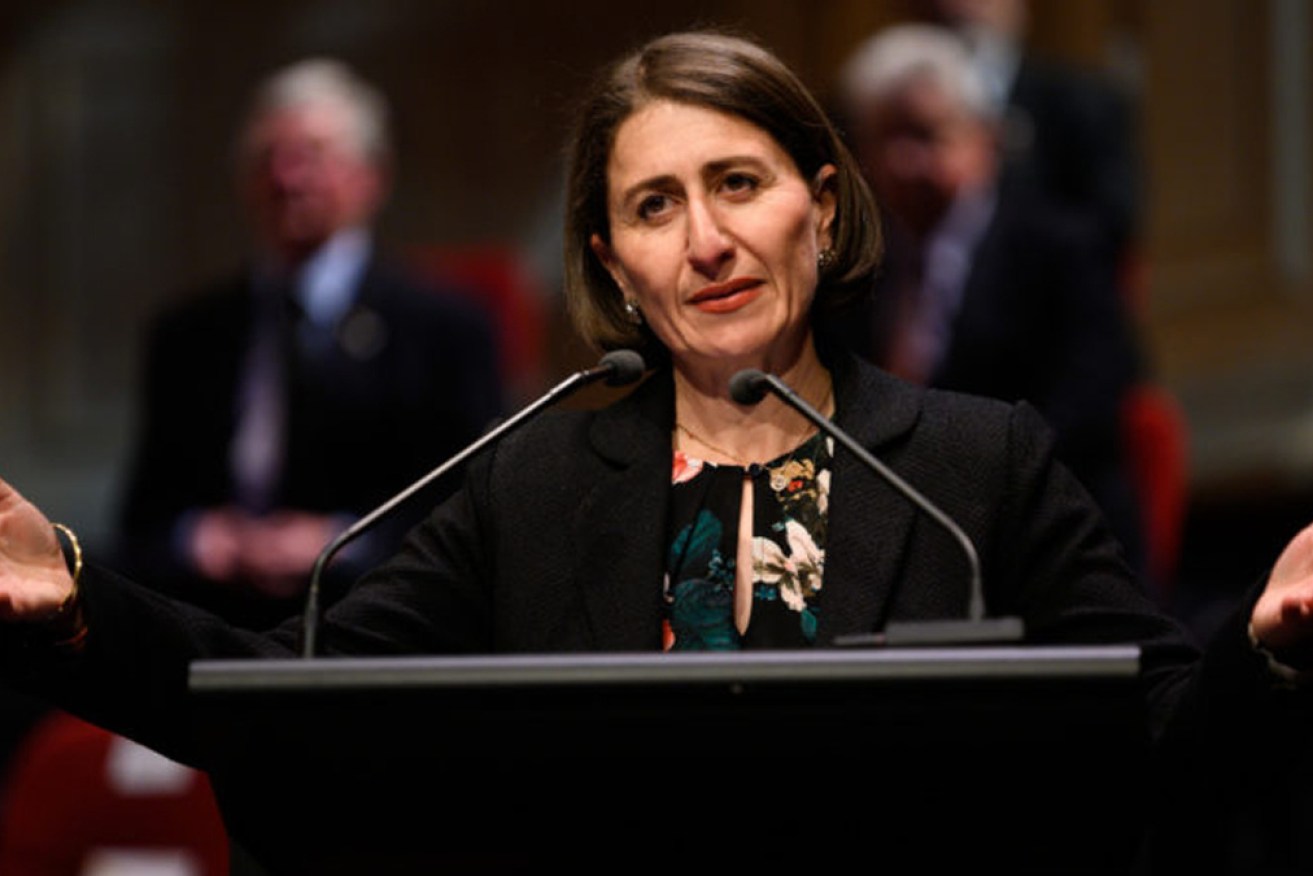Can ‘gold medal Gladys’ ever remove the stain of corruption?


Gladys Berejiklian said the report had produced nothing to show that she did anything but govern in the public’s interest. Photo: AAP
A corruption watchdog will oversee Australian politics for the first time from Saturday when the National Anti-Corruption Commission starts operating.
The NACC is expected to bring new accountability to national politics after a promise made at last year’s election when voters’ trust in government was recorded at its lowest point since Gough Whitlam’s dismissal.
Attorney-General Mark Dreyfus said the commission’s aim was “delivering
“The
It opens with 180 staff, a figure expected to double over the next five years when its budgets run to over $220 million.
Some 94 per cent of voters supported a national corruption body last May after integrity scandals rocked Scott Morrison’s government.
There has been a more complicated response to the case of Gladys Berejiklian, the former NSW premier a watchdog found had engaged in “serious corruption” while in office.
The state’s ICAC found Ms Berejiklian broke the public’s trust by not disclosing she was in a relationship with a fellow former MP Daryl Maguire who now faces criminal charges for running corrupt schemes from his office in parliament.
The ex-premier said nothing of her relationship with Mr Maguire even while presiding over or serving on a cabinet committee that approved grants worth more than $20 million to projects he had been lobbying for in his electorate.
But Ms Berejiklian will face no criminal charges and was never alleged to have taken money or the proceeds of corruption.
That has led her supporters to argue she had been treated unfairly.
“The ICAC has basically revealed to us that Gladys was in a secret relationship with a weirdo,” former state treasurer Matt Kean said on Thursday.
Geoffrey Watson, the counsel assisting the ICAC at famous inquiries into matters involving disgraced Labor MP Eddie Obeid and former NSW premier Barry O’Farrell, said there should not be any doubt about whether its most recent probe had been necessary.
“Gladys Berejiklian really makes up only 5 per cent or 10 per cent of the whole of the inquiry
“She is so popular it’s sucked all the oxygen out of its real job which was to expose corruption,” he said. “It’s done a great job with that.”
Ms Berejiklian thanked members of the public who had stood by her on Thursday,
Her new employer, Optus, acknowledged the report but made no further comment.
The former premier’s popularity soared during the pandemic and remained high after her resignation and an inquiry that dragged on without resolution for over two years.
ICAC investigations have turned NSW politics upside down at irregular intervals in the three decades since its creation.
Mr Watson said it had changed the culture of politics in NSW, a state association with corruption begins with the rum corps, where criminal investigations would not have delivered results.
“(An MP under police investigation) would say: ‘I’m so sorry; my lawyers told me not to cooperate’ and we would come to a crashing end,” he said.
“That’s why we’ve had no investigation of corruption coming out of Canberra for the last 10 years.”
But Mr Watson says that will start to change but not only from the fallout of future investigations.
“When (corrupt conduct is) exposed that restores confidence. But when people start losing confidence in the honesty of their politicians they start cutting corners themselves,” he said.
A Liberal premier of NSW, Nick Greiner, presented ICAC as a remedy to clear a “cloud of suspicion and doubt” hanging over government institutions and impeding their functions.
He said its aim was not to achieve prosecutions but to publicise the results of its investigations into matters that might otherwise avoid scrutiny.
The NACC’s work on serious or systemic cases of corruption begins with the financial year on July 1.








